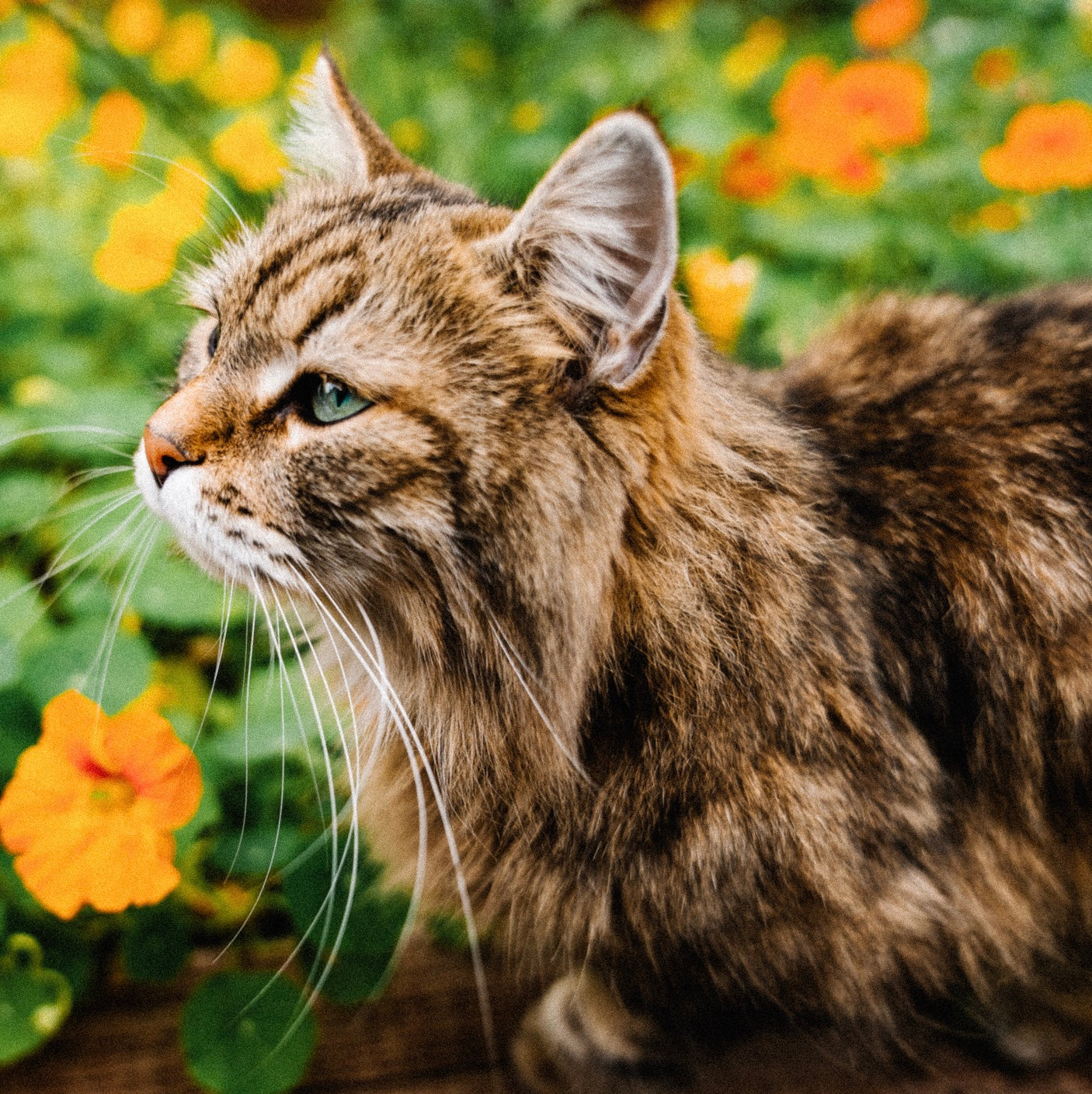
There are so many perks of having a cat- they’re snuggly, affectionate, and have big personalities. The temptation arises to let your cat outside to give them all the benefits of the great outdoors. But is it wise to let your cat outdoors? While there is certainly a time and place to let your cat outside, the short answer is, no. Not if they are not protected or contained. But why not?! In short, Cats live longer as indoor-only pets. There are a number of threats to outdoor cats including: Predators, cars, disease, and the elements.
Predators
Predators to cats can come from land, air, and even from the sea! Venomous snakes, mountain lions, coyotes, badgers (and their otter cousins!), owls, and hawks - just to name a few - all pose a risk to the health and safety of outdoor cats. Although it can feel far-fetched that such an agile animal can fall prey to any number of predators outside, it happens much more often than we realize. In fact, a study of the stomach contents of 83 mountain lions in California found that over half of them had recently consumed cats, dogs, or other domestic animals.
Cars
Though they’re domesticated, cats still have a natural understanding of being both predator and prey. They don’t have an understanding of cars. This is, unfortunately, demonstrated in the statistic that 5.4 million cats are hit by cars each year in the United States.
Disease
Outdoor cats are much more likely to pick up parasites and diseases than indoor cats. These diseases and parasites include distemper, ringworm, internal parasites, mange, fleas, ticks, etc. These can be passed on to other pets in your home, and some, like ringworm, can be passed to the humans in your house as well. Even if your cat is successfully treated, parasites like fleas have life cycles that allow them to lie dormant for months in your home, reinfecting your pets. Completely eliminating these from your house requires continuous and thorough pet and home cleaning and treatment.
Cats Can Do Harm to Others
Outdoor cats are a threat to native wildlife as well. Hunting critters is a favorite pastime of cats, and although this is a natural behavior, it can disrupt the ecosystem a cat is introduced to. It should also be noted that cats don’t always eat their caught or injured prey, making it easier for injured animals who are able to get away to get and spread infections. Just because you don’t see the evidence of your cat’s hunting, doesn’t mean he isn’t successful.
A Note on Declawed Cats
Declawed cats should, under no circumstances, be left outside. Not only do they not have the ability to climb to escape predators and reach safety, but they also don’t have their claws to defend themselves in case of attack.
When Can You Let Your Cat Outside?
That being said, letting your cat outside for safe, supervised time to sniff and explore can be very beneficial to their mental wellbeing. To do this, first be sure to protect your cat with an appropriate flea/tick preventative. Always be sure you can supervise your cat and/or keep them safe and contained while outside. Some options include:



